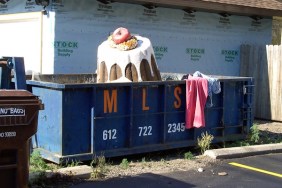You don’t have to suffer with pests or harm the environment trying to get rid of them just to enjoy all of the outdoor activities of the season. There are many eco-friendly ways to approach pest control, whether the problem is slugs on your patio or a snake in the pool. We no longer have to rely on harsh chemicals to enjoy the summer.
Natural Insect Repellants
(images via: digital-photo, goycodesign, timeturk, nomisgarden, candleandsoap)
Cedar oil is a natural, non-toxic insect repellent. It can be used to repel mosquitoes, fleas, ants, cockroaches and other insects. It’s safe for your skin and even has a pleasant smell. Pets and pet bedding can also be treated with cedar oil to control fleas. Citronella oil is another natural mosquito repellent and is often used in outdoor candles, while the Mosquito Plant, or Citrosa Geranium, is often grown on patios for its mosquito-repelling qualities.
Beneficial Insects
(images via: plants-aplenty, hydroponicsdictionary, triangle, hirts-gardens)
Beneficial insects are natural predators of other insects that can cause damage in the garden. Live specimens and eggs are available commercially, but by providing a favorable habitat through plantings that provide cover for these insects, you can attract them to your property. Create the right environment and you can have an army of beneficial insects go to work for you.
Solar-Powered Repellents
(images via: echidneofthesnakes, guildfordpestcontrol, improvementscatalog, windstar, dgsgardening)
Solar powered pest control products are a relatively new green product on the market. Solar panels on the top of the unit collect energy from the sun while the spike is buried underground. The device periodically shakes, sending vibrations through the ground to disturb and frighten animals. Models are available to repel moles and other vermin and at least one company makes a solar powered snake repellent. However, many gardeners are happy to see snakes in the garden, as they are natural predators of the smaller mammals that cause the most damage.
Humane Relocation: Trap and Release
(images via: 247wildlife, neparental, greenfeet, cahabasnaketrapsales)
A very humane way of dealing with a pest problem is the trap and release method. There are a variety of no-kill traps available to safely capture an unwanted animal so that it can be relocated in the wild. Special care must be taken when relocating animals to ensure their survival. They should be relocated early in the day to an area that provides plenty of food, water and shelter. Glue traps are also available to help capture and relocate snakes. When it is time to release the snake, vegetable or mineral oil loosens the glue.
Wash Bad Bugs Away
(images via: bgi-usa, cirrusimage, liferevolving, aerogardenstore)
Aphids can often be removed from ornamental plants simply with a blast of water from the hose. The tiny mouths of the aphids remain stuck to the plant, while the bodies wash away. To control scale and other parasitic insects in the garden, Neem oil or insecticidal soap can be sprayed directly on the plant and insect-infestation. These products are safe for the plants and the environment.
Banish Snails and Slugs
(images via: canada, calacademy, hiltonpond, avianimmunology, safesolutions, thevitaminm)
Snails and slugs can destroy delicate plants overnight. These soft-bodied pests come out after dark and wreak havoc in the garden. To control the population, a shallow dish of beer can be placed among the plants that need protection. Slugs especially love beer and will fall in and drown. Diatomaceous earth and crushed eggshells sprinkled among plants also help prevent slug and snail damage as they will not cross a barrier that will damage their soft undersides.
Attract Birds
(images via: innweston, christmasbarn, calfinder, evaneco, babypicturesphoto)
Many wild birds are natural predators of the insects we wish to eliminate. You can attract wild birds to your home by creating a favorable habitat for them. By providing water in a bird bath, hanging bird feeders filled with food for the bird species you wish to attract and planting brightly colored flowering plants for hummingbirds, who like nectar, you can lure birds in to do your dirty work for you – naturally.
Skunks: Handle with Caution
(images via: grandmashomeremedies, nakedcapitalism, halopets)
If you have a skunk problem, there may be no pleasant way to solve it. Baby skunks have a functioning scent gland from the time they are born, so care must be taken not to startle them. Skunks are nocturnal animals and usually will visit you in the night to find a meal. You can discourage skunk activity on your property by making sure all garbage is secure inside a lidded trash can and putting away all pet food before turning in for the night.





